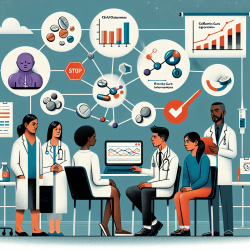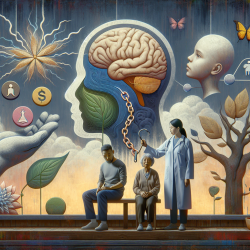Evaluating the Impact of Virtual Therapy on Children's Development
In the realm of special education, the integration of virtual therapy has been nothing short of revolutionary. As a speech-language pathologist deeply invested in data-driven decisions, I am particularly fascinated by how online therapy is transforming the educational landscape for children with special needs. Let's delve into the facts and figures that illustrate the profound impact of virtual therapy on children's development.
The Rise of Virtual Therapy
Virtual therapy, also known as teletherapy, has seen a significant rise in adoption, especially in response to the increasing demand for accessible and flexible therapy solutions. Schools and special education funding agencies are turning to online therapy platforms like TinyEYE to meet the diverse needs of children across various settings.
Data-Driven Insights into Virtual Therapy
According to recent studies, virtual therapy has been shown to be as effective as in-person therapy in improving children's communication skills, social interactions, and overall academic performance. Here are some key data points that highlight the benefits of online therapy:
- Accessibility: Virtual therapy eliminates geographical barriers, providing children in remote areas with access to specialized therapy services.
- Flexibility: Online sessions can be scheduled at convenient times, accommodating the busy schedules of families and schools.
- Engagement: Interactive digital tools and resources used in virtual therapy sessions have been shown to enhance children's engagement and motivation.
- Progress Tracking: Advanced data analytics allow therapists to track and analyze children's progress in real-time, enabling personalized and targeted interventions.
Creating Inspired Outcomes
One of the most inspiring aspects of virtual therapy is its ability to create personalized and meaningful outcomes for children. By leveraging technology, therapists can tailor interventions to suit the unique needs of each child, fostering self-actualization and empowering them to reach their full potential.
Furthermore, virtual therapy facilitates collaboration between therapists, teachers, and parents, creating a supportive ecosystem that enhances the overall learning experience for children. This collaborative approach ensures that all stakeholders are aligned in their efforts to support the child's development.
The Future of Virtual Therapy in Special Education
As we look to the future, the potential for virtual therapy in special education is immense. Continued advancements in technology and data analytics will further enhance the effectiveness and reach of online therapy services. Special education funding agencies play a crucial role in supporting the adoption and expansion of virtual therapy programs, ensuring that all children have access to the resources they need to thrive.
In conclusion, the data-driven impact of virtual therapy on children's development is undeniable. By embracing online therapy, we are not only addressing current challenges in special education but also paving the way for a more inclusive and equitable future for all children.










